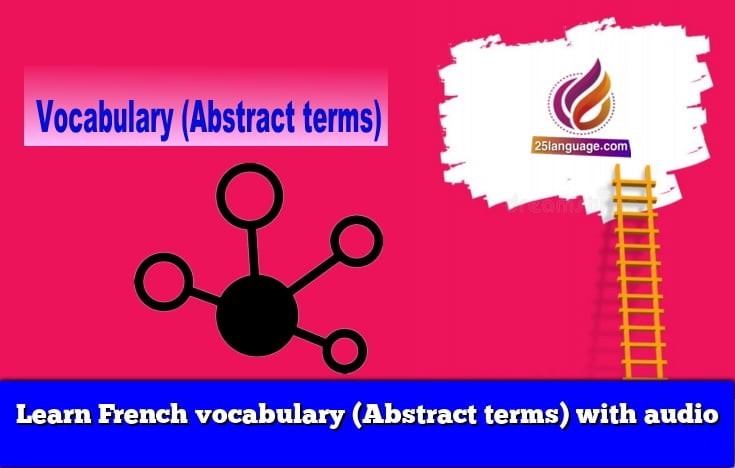Future and Conditional Tenses in French

Imagine being able to express your hopes, dreams, and possibilities in French! In this lesson, we’ll unlock the power of the future and conditional tenses. You’ll learn how to convey what you will do or what might happen—essential skills for sharing your aspirations and making polite requests. By mastering these tenses, you’ll enhance your fluency and confidence, enriching your conversations and allowing you to connect more deeply with the French-speaking world.
Mastering the Future: Exploring French Future and Conditional Tenses
In French, the future tense is often formed using the infinitive of the verb, plus the appropriate future tense endings. The endings are: -ai, -as, -a, -ons, -ez, -ont. For example:
- Je parlerai – I will speak
- Tu finiras – You will finish
- il/Elle mangera – He/She will eat
- Nous irons – We will go
- Vous viendrez – You will come
- Ils/Elles prendront – They will take
There are some irregular verbs with irregular stems for the future tense, such as être (ser-), avoir (aur-), and aller (ir-). Additionally, the conditional tense is used to express actions that would occur under certain conditions. It is formed similarly to the future tense but uses the imperfect endings: -ais, -ais, -ait, -ions, -iez, -aient. For example:
- Je parlerais – I would speak
- Tu finirais - You would finish
- Il/Elle mangerait – He/She would eat
- Nous irions – We would go
- Vous viendriez – You would come
- Ils/Elles prendraient – They would take
| French Example | Grammar Rule | English Translation |
|---|---|---|
| Je jouerai au tennis. | Future tense with infinitive + future endings. | I will play tennis. |
| Nous serons en retard. | Irregular verb ‘être’ (ser-) in future tense. | We will be late. |
| Ils tomberaient si ça pleuvait. | Conditional tense with imperfect endings. | They would fall if it rained. |
| Tu aurais besoin d’aide. | irregular verb ‘avoir’ (aur-) in conditional tense. | You would need help. |
Unraveling the Future: A Deep Dive into French tenses
When discussing future actions in French, it is indeed essential to understand the futur proche and futur simple tenses. the futur proche (near future) is formed using the present tense of the verb aller (to go) followed by the infinitive of the main verb. This tense is used for actions that are about to happen or are planned. For example:
- Je vais manger. → I am going to eat.
- Tu vas étudier. → You are going to study.
Conversely, the futur simple is used for actions that will occur in the future and is formed by adding specific endings to the infinitive form of the verb. The endings are: -ai, -as, -a, -ons, -ez, -ont. As a notable example:
- Je mangerai. → I will eat.
- Ils étudieront. → They will study.
| French Example | Tense | English Translation |
|---|---|---|
| Je vais voyager. | Futur Proche | I am going to travel. |
| Nous allons jouer. | Futur Proche | We are going to play. |
| Elle finira son projet. | Futur Simple | She will finish her project. |
| Vous prendrez le train. | Futur Simple | You will take the train. |
Conditional Contexts: Understanding Usage and Nuance in French
The conditional mood in French is primarily used to express hypothetical situations, polite requests, or events that are dependent on certain conditions. To form the conditional, one typically starts with the future stem of the verb and adds the conditional endings: -ais, -ais, -ait, -ions, -iez, -aient. Here are some key contexts in which the conditional is utilized:
- Hypothetical Situations: “Si j’avais un million d’euros, j’achèterais une maison.” (if I had a million euros, I would buy a house.)
- Polite Requests: “Pourriez-vous m’aider,s’il vous plaît ?” (Could you help me,please?)
Another important aspect of the conditional is its use in expressing desires or wishes. in such cases,it may combine with verbs like “vouloir” (to want) or “aimer” (to like). Depending on the context,the conditional can indicate a softer request or hypothetical desire:
- Desires or Wishes: “J’aimerais voyager en France.” (I would like to travel to France.)
- Indirect Suggestions: “Je voudrais une tasse de thé.” (I would like a cup of tea.)
| French Example | Grammar Rule | English Translation |
|---|---|---|
| Si j’étais riche, je ferais le tour du monde. | Hypothetical situation using ‘si’ and conditional. | if I were rich, I would travel around the world. |
| Je voudrais un café, s’il vous plaît. | Polite request using conditional. | I would like a coffee, please. |
practical Pathways: Enhancing Your French with Future and Conditional Forms
In French, the future tense is used to describe actions that will happen. To form the future tense,we typically add specific endings to the infinitive form of the verb. Regular verbs in the future tense follow this pattern:
- For -er and -ir verbs,add: -ai,-as,-a,-ons,-ez,-ont
- For -re verbs,remove the final -e and then add the same endings
Examples:
| French Example | English Translation |
|---|---|
| Je parlerai | I will speak |
| Tu finiras | You will finish |
| Ils répondront | They will respond |
The conditional tense in French is used to express possibilities or hypotheses,often translated as “would” in English. To form the conditional, we use the same stems as the future tense and add specific endings: -ais, -ais, -ait, -ions, -iez, -aient. This allows us to discuss what someone would do in a particular situation.
- Like the future tense, regular verbs follow the same structure as previously mentioned.
- Irregular verbs will have unique stems as well.
Examples:
| French Example | English Translation |
|---|---|
| Je parlerais | I would speak |
| Tu finirais | You would finish |
| Ils répondraient | They would respond |
closing Remarks
Conclusion
Félicitations! You’ve made great strides in your understanding of the future and conditional tenses in French. Today, we explored how these tenses allow you to express plans, dreams, and hypothetical situations, expanding your ability to communicate nuances in the French language.
To recap, we learned that the future tense is formed by taking the infinitive of the verb and adding the appropriate endings, while the conditional tense is constructed by adding specific endings to the infinitive or the future stem. Remember that mastering these tenses will not only enhance your grammatical skills but also enrich your conversations and writing.
Now, it’s time to put your new knowledge into practise. Try to incorporate the future and conditional tenses into your daily conversations,whether by discussing your plans for the weekend or imagining what you would do if you traveled to a French-speaking contry. The more you practice, the more agreeable you will become.
Don’t hesitate to listen to French music, watch films, or read books to see these tenses in action. You’re on an exciting journey to fluency,and with each new lesson,you grow more proficient. Continue to embrace the challenges ahead, and remember: every effort you put in brings you one step closer to your goals. Bonne chance et à bientôt!





























